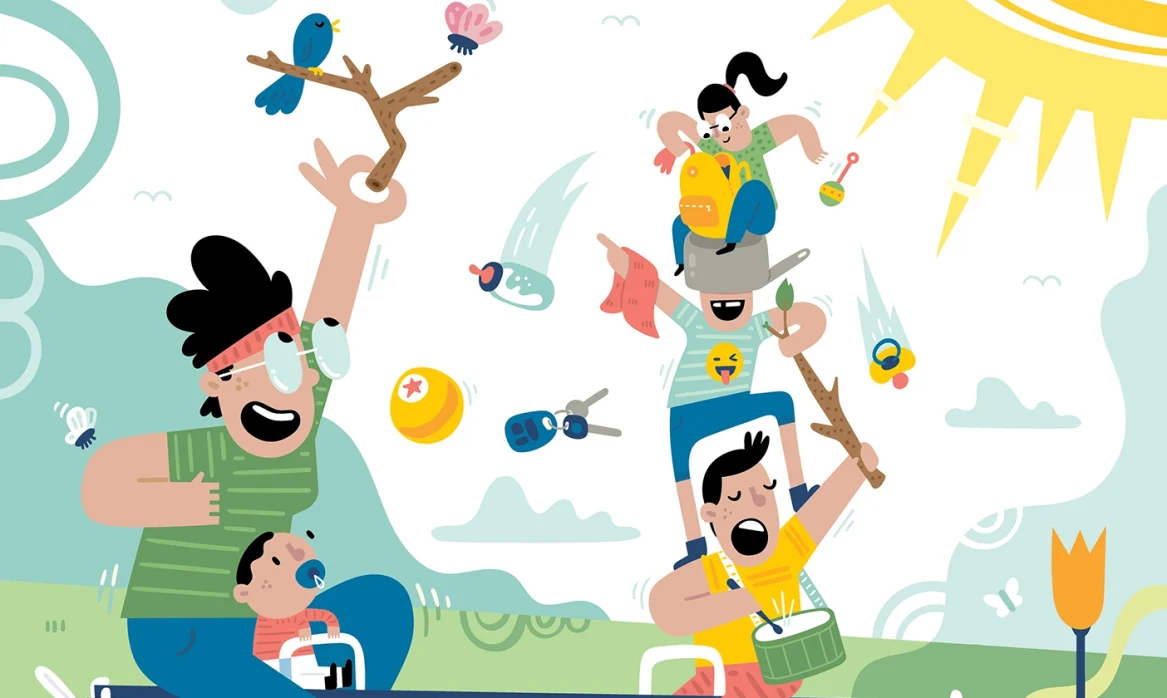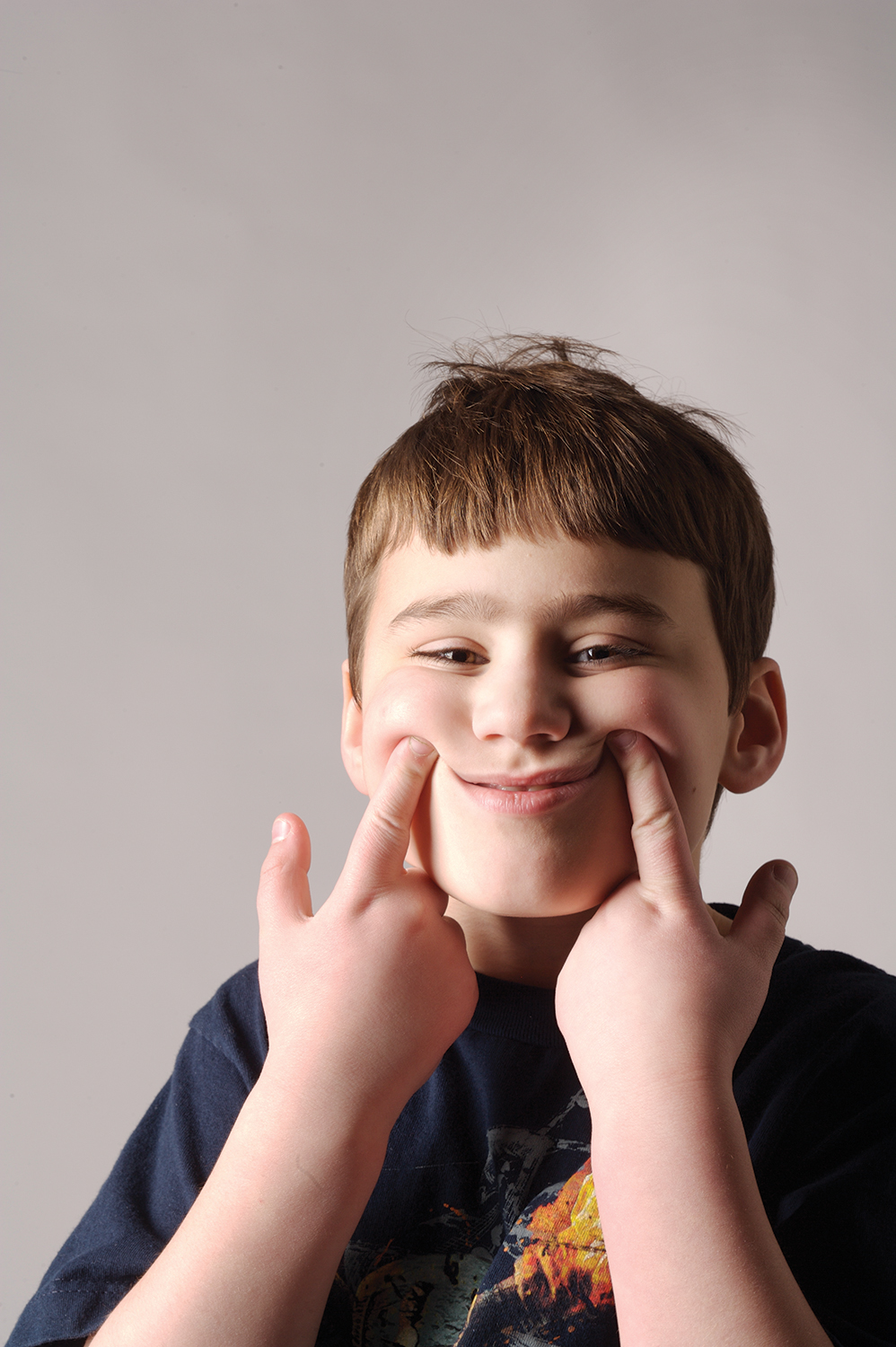One mother discusses managing meltdowns and finding unexpected gifts in the chaos of parenting neurodiverse children.

On a crisp, beautiful fall day in Provo, I sat in my abnormal psychology class at BYU. We were studying commonly diagnosed disorders of childhood. Reading about ADHD—a disorder marked by hyperactivity, impulsivity, and inattention—I thought about parenting such a child. I glanced at my planner, where each class and assignment was color coded and organized in perfect order and harmony. “I could never handle a child with ADHD,” I sighed to my study partner.
Yes. I said that out loud. And that is how I know God has a sense of humor.
When my children came, it quickly became obvious that they were not neurotypical. Sitting in church, I watched enviously as others’ toddlers quietly hovered nearby their parents. My daughter, on the other hand, had already pulled out everything from our diaper bag—and my neighbor’s bag—and had moved on down the row and out toward the door. It always felt like a whirlwind.
As we added children, we accumulated diagnoses: ADHD, anxiety, depression, autism. After each came a grieving period. A diagnosis didn’t change my loved one, but it did mean a sometimes painful shift in my expectations. My family was never going to sit quietly and listen—at church or anywhere. One son could never attend a BYU football game due to his aversion to loud noise and crowds. Managing to get homework done and turned in would require monumental effort.
However, each diagnosis also gave me new information and tools. I learned about fidget tricks, mindfulness, medications, and how to advocate. Therapists taught me to manage meltdowns. I learned to let go of caring about others’ judgments. And I got to practice and practice—eventually learning to keep my cool and be a little less ruffled during an autistic meltdown or a burst of hyperactivity.
The tools didn’t just help me “get through it.” They helped me to love my kids as they are. I love how active my kids have kept me, even if it is exhausting sometimes. We do jumping jacks or play “I spy” while waiting for an appointment. I also love how creative my kids are. Whether I’m trying to muffle a laugh when I get the latest call from the junior high or watching their enthusiasm as they make elaborate family movies, I enjoy that they are exuberant in all things.
I have learned to laugh at our idiosyncrasies. For example, we have broken at least 12 kitchen chairs. My kids cannot sit still during meals, and a child and chair toppling during dinner is a regular occurrence. After the fourth broken chair, I decided to laugh instead of being angry.
I have loved the village that I have collected as my children have needed extra help. Healthcare workers, teachers, church leaders, and friends. People with their own special needs have nestled me into their clan, just because they can see that I understand what it is to be different. Even though our needs look different, we can offer each other love without judgment.
One Halloween my son, almost 2, was dressed as a cute bumblebee. When we opened the door to walk outside into the dark, cool air, he melted down. He did not want to go, no matter what we promised him. We carried him, kicking and screaming, next door to ring just one doorbell. My neighbor opened the door and handed him a candy. A light bulb went off in his brain. “Canny! CANNY!” He held up the chocolate. “I yike canny!” We laughed at his sudden change of heart. He loved trick-or-treating.
In my mind I can see God chuckling at a young, naive college girl. So sure of what I wanted, I would have rejected the “candy” that God was offering to me. Still, He dragged me along (occasionally kicking and screaming) until I could see that what I dreaded were actually gifts.
Yes, I still savor a clean and organized home. My organization is my gift. It allows my whirlwind family to move forward and accomplish our goals. But it turns out that my family’s craziness, hyperactivity, autism, and even ADHD are gifts to me too.

Christina Franklin loves storytelling, family adventures, and responding to medical emergencies.
Share a Family Story
In Letters from Home Y Magazine publishes essays by alumni about family-life experiences—as parents, spouses, grandparents, children. Essays should be 700 words and written in first-person voice. Y Magazine will pay $350 for essays published in Letters from Home. Send submissions to lettersfromhome@byu.edu.













